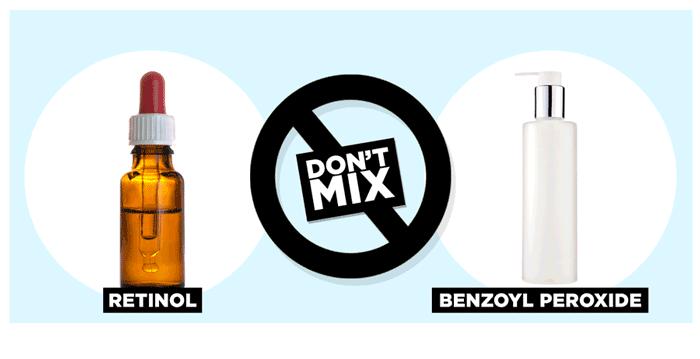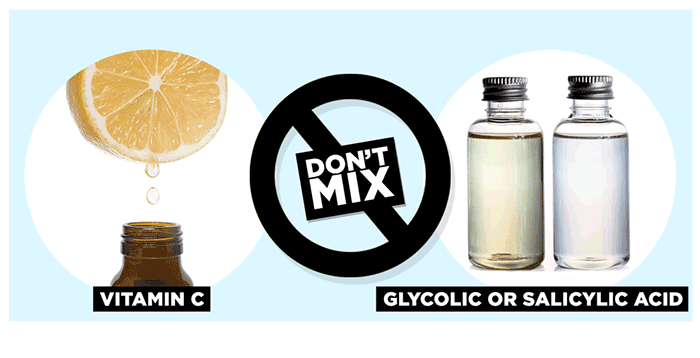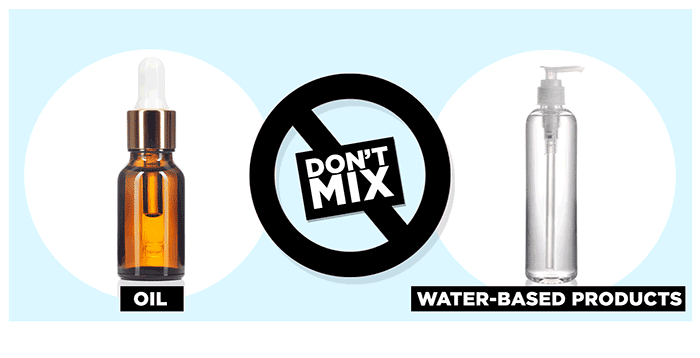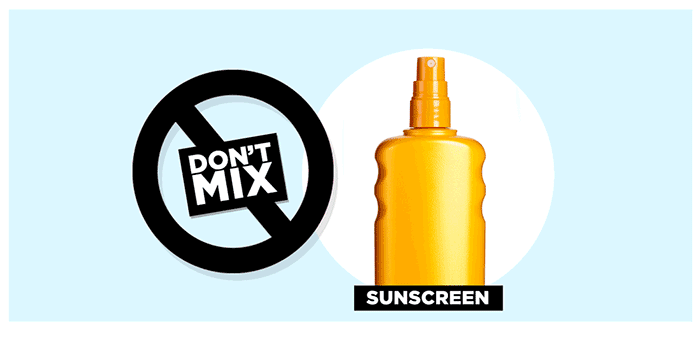Skin Care Ingredients You Should Never Mix

If you’re a beauty lover like we are, there’s no doubt you are constantly trying the latest and greatest products to hit the market — hey, we don’t blame you. But the combination of skin care items tucked inside your medicine cabinet is likely resulting in a mix-and-match beauty routine.
While there’s nothing wrong with layering products (that’s why the Korean 7 Skin Method is so effective and popular), it is important to be cautious of which ingredients you’re mixing and matching.
“To add so many products and all the chemicals (which you could be potentially allergic to) can wreak havoc to your skin,” says Yoon-Soo Cindy Bae, a clinical assistant professor at New York University Medical Center and associate at the Laser & Skin Surgery Center in New York. “Think about it, with each product you apply, you are also adding all of the non-active ingredients and preservatives.”
Sherry Ingraham of the SkinCeuticals Advanced Clinical Spa by Advanced Dermatology, agrees. “Many of the formulas today are much more advanced and complex than the products our mothers used,” she says. “While most basic cleansers and moisturizers are OK to mix and match — when it comes to mixing products with active ingredients — the results can occasionally cause redness and irritation or, in some cases, reduced efficacy.”
Here are some skin care ingredients and products you should think twice about mixing.
Retinol and benzoyl peroxide

Retinol, the derivative of vitamin A that’s packed with antiaging benefits, is often used for acne treatments, as is benzoyl peroxide. However, layering the two is a no-no.
“A lot of acne patients desperate to clear their skin tend to layer on as many acne-fighting ingredients as they can find in their medicine cabinet,” says Ingraham. “While separately retinol and benzoyl peroxide can be very effective at treating acne — combining the two ingredients on top of each other is a recipe for redness, irritation and skin peeling.”
Retinol and vitamin C

Bae says these two are traditionally “do not mix” ingredients, as vitamin C can weaken or destabilize the retinoid component. However, she does note there are studies that conclude these ingredients do work well together to treat melasma and photodamaged skin.
If you want to be safe, take Ingraham’s advice of applying an antioxidant containing vitamin C in the morning and retinol in the evening.
Vitamin C and glycolic or salicylic acid

When it comes to vitamin C and acids, Ingraham suggests avoiding this combination unless they have already been formulated together by a reputable skin care brand. Otherwise, the vitamin C will destabilize the ingredients, causing the antioxidant properties to be compromised.
Skin-brightening creams and oil

Using oils before skin-brightening products is a not a good idea because the mixture causes penetration issues, says Bae. Since skin-brightening creams contain a variety of different ingredients, she also advises going through the list and researching the effects to avoid any negative reactions on your skin.
Should your skin get irritated, the dermatologist suggests using the product you want to benefit from the most and nixing the rest.
Oil- and water-based products

Bae does not recommend using an oil-based product followed by a water-based moisturizer as the latter will not absorb.
However, according to Natalia Cosentini, an advanced instructor at Dermalogica Canada, it is not incorrect to combine the two, so long as the water-based product is applied prior to the facial oil.
“Any water-based substance will be actively and easily absorbed by the skin, whereas oil-based substances are meant to create an occlusive barrier for the skin and are not meant to penetrate but rather create a seal to keep the moisture in,” she explains.
Sunscreen

Both Ingraham and Bae say sunscreen is one product that should never be mixed or diluted with any other product, including moisturizer and foundation.
“Sun protection should be applied as a last step in your skin care routine, regardless of delivery method (spray, powder, serum, foam etc.),” says Ingraham.
She also notes that while combining different sunscreens is OK, sun protection is not additive. In other words, using SPF 30 on top of SPF 45 will not give you SPF 75.
Final words of advice: When layering skin care ingredients or products, be sure to go from lightest to heaviest, and always apply sunscreen as a final step. If you start to see your skin reacting negatively, pay attention to the symptom and take note of what causes the irritation.
“Common sense goes a long way with skin care,” says Bae. “If you notice you are dry, irritated or flaky, then add a moisturizer or take away an active ingredient that could be exacerbating it.”
Your best bet to ensure your skin is in tip-top condition is to consult a board-certified dermatologist or skin care expert. They’ll analyze your skin and help you to create a custom regimen to ensure the best possible results.
Read more from Yahoo Style + Beauty:
Follow us on Instagram, Facebook, and Pinterest for nonstop inspiration delivered fresh to your feed, every day. For Twitter updates, follow @YahooStyle and @YahooBeauty.

